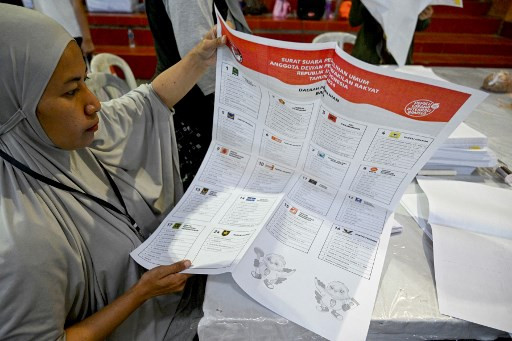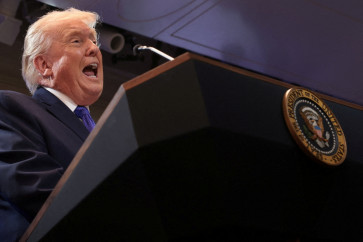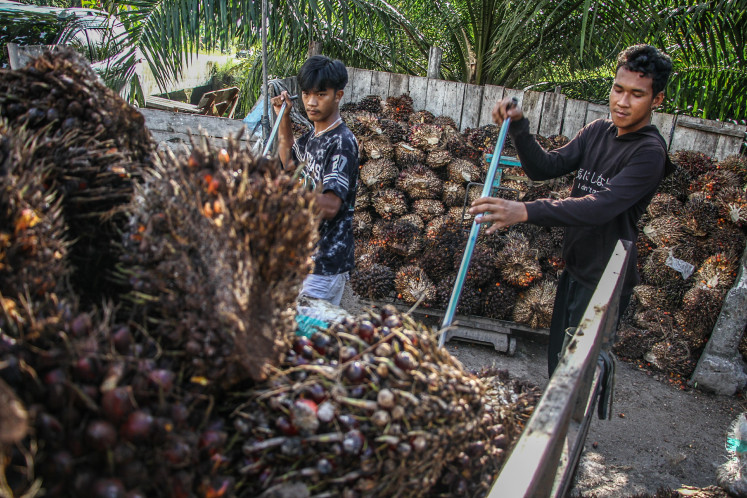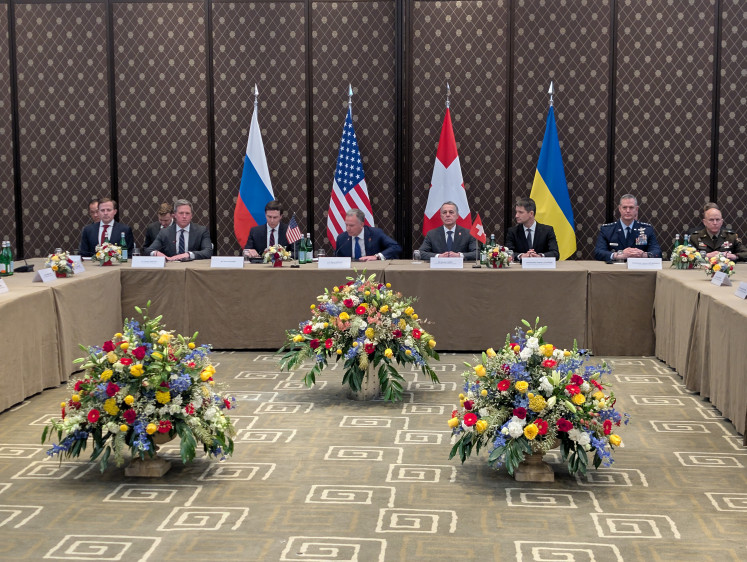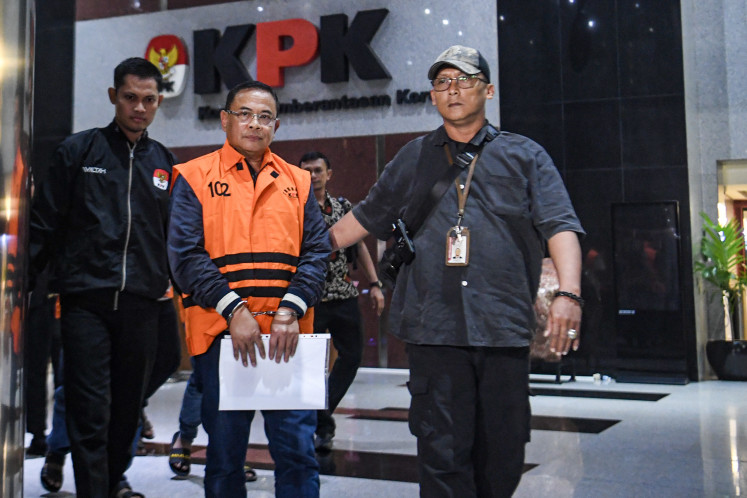Popular Reads
Top Results
Can't find what you're looking for?
View all search resultsPopular Reads
Top Results
Can't find what you're looking for?
View all search resultsEarly indicators
In a country where both the executive and legislative branches of government play an active role in lawmaking, the results of the legislative race will be important in determining the strength and direction of the nation.
Change text size
Gift Premium Articles
to Anyone

Presumptive 2024 presidential election winner Prabowo Subianto appears to have cemented an unassailable lead as the dust settles on the various quick count results predicting the outcome of one of the world’s biggest single-day elections.
But while the defense minister had been widely favored to win months before voters headed to the polls, his political brainchild, the Gerindra Party, looks to have had a more subdued victory in the legislative race, placing third despite high hopes of making a big splash at the Senayan legislative complex.
Instead, the ruling Indonesian Democratic Party of Struggle (PDI-P) has succeeded in delivering a hat-trick win despite having all but parted ways with the highly popular incumbent President Joko “Jokowi” Widodo, according to the preliminary results from survey agencies.
Based on three usually reliable pollsters whose quick counts were more than 99 percent complete as of Sunday, the nationalist-oriented PDI-P averaged 16 percent, followed closely by Golkar at 15 percent and Gerindra at 13 percent.
In a country where both the executive and legislative branches of government play an active role in lawmaking, the results of the legislative race will be important in determining the strength and direction of the nation.
While the official election results are not due until March 20, we can already glean some interesting takeaways from the available data.

Firstly, except for Golkar overtaking Gerindra in second place, the roster of the top nine political parties essentially stayed the same as in the 2019 race.
But according to results from the Centre for Strategic and International Studies (CSIS) and the Cyrus Network, which have a 1 percent margin of error, only eight parties are poised to enter the House of Representatives, with the Islam-based United Development Party (PPP) likely failing to clear the 4 percent parliamentary threshold.
With an even number of political parties in the House, there would be no tiebreaker when lawmaking goes down to a vote.
Meanwhile, the Indonesian Solidarity Party (PSI), a self-proclaimed “youth party” that was taken over by Jokowi’s younger son Kaesang Pangarep and whose entry into the House was listed by Prabowo’s camp as one of its objectives, is unlikely to make the cut with just 2.67 percent of votes.
The National Awakening Party (PKB), often affiliated with the country’s largest religious organization, Nahdlatul Ulama (NU), took 10.88 percent of votes, according to the CSIS, while the NasDem Party garnered 9.15 percent. Both parties ran on a narrative of change, having thrown their support behind presidential candidate Anies Baswedan.
These findings suggest one of the most striking details of this year’s elections: the success of political alliances in the presidential race had limited effects on the legislative elections, and vice versa.
Early analyses suggest that some voters who backed the PDI-P or PKB in the legislative race ended up voting for Prabowo, at the behest of the PDI-P’s presidential hopeful Ganjar Pranowo and PKB chairman Muhaimin Iskandar, who ran as vice presidential candidate to Anies.
The presumptive House parties include NasDem, the PKB and the Prosperous Justice Party (PKS), who supported Anies; Gerindra, Golkar, the National Mandate Party (PAN) and the Democratic Party, who backed Prabowo; and the PDI-P, which nominated Ganjar.
The PDI-P has since expressed a willingness to return to its role in the opposition should the real count reflect the early results, potentially bringing us back to 2014, when much of the Jokowi administration’s policy making faced House opposition.
But Prabowo’s camp has said that it would be open to governing alongside parties outside of its coalition, using potential cabinet appointments as a sweetener. A cabinet reshuffle might even happen as early as next month.
Based on the experience gained through the last nine years of Jokowi’s presidency, it might be best for the PDI-P not to join the government coalition so that the country retains some measure of effective checks and balances.

